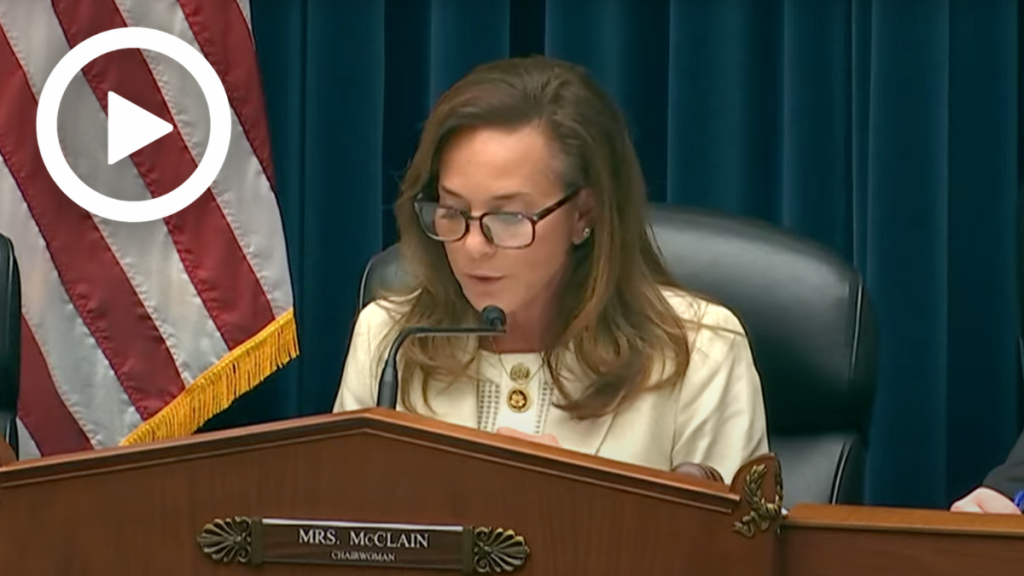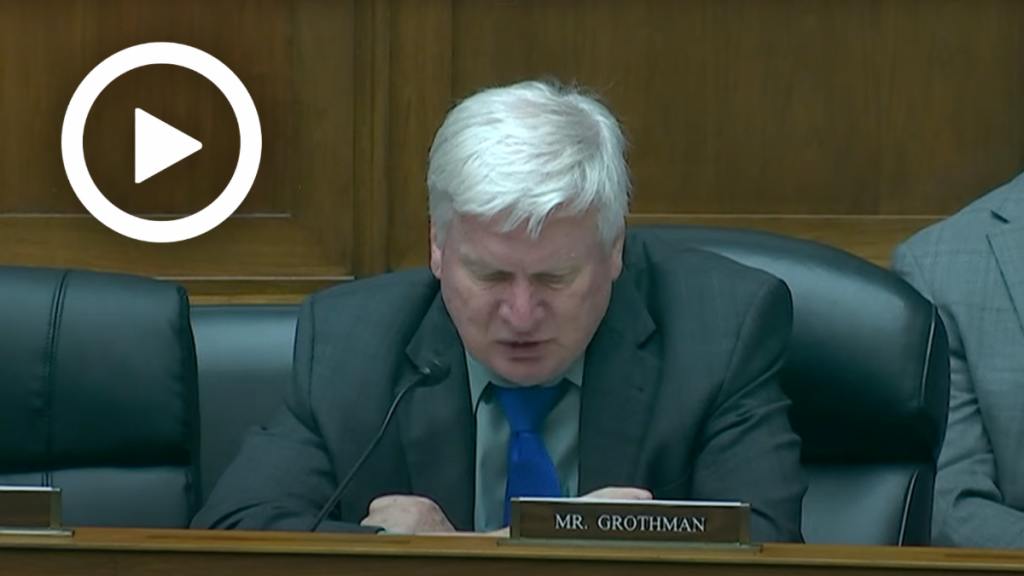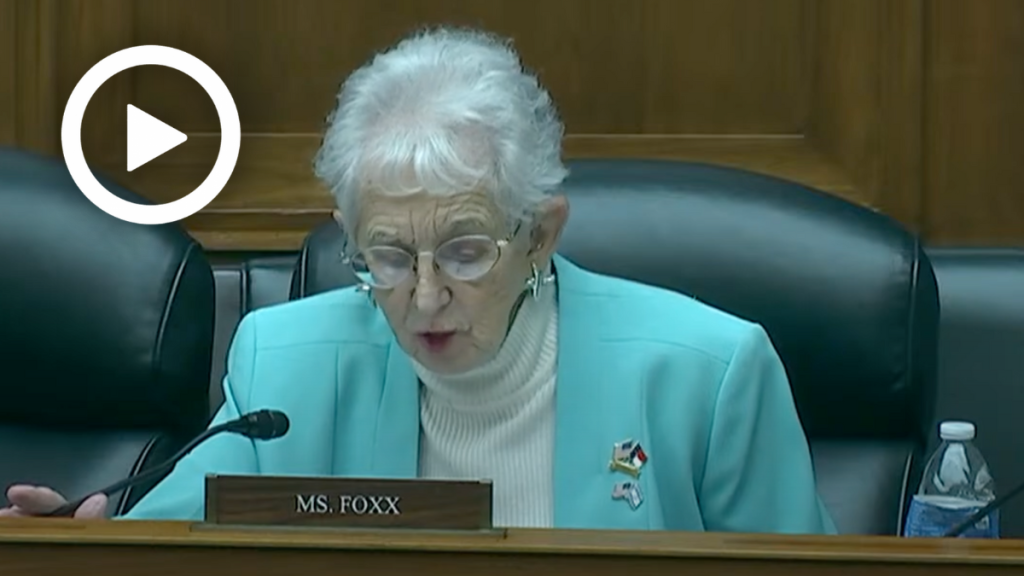Hearing Wrap Up: Rising Interest Rates to Address Inflation Caused by Dem Spending Disproportionately Hit Commercial Real Estate
WASHINGTON—The Subcommittee on Health Care and Financial Services held a hearing titled “Health of the Commercial Real Estate Markets and Removing Regulatory Hurdles to Ensure Continued Strength” to examine the state of the commercial real estate market and discuss how the Biden Administration’s policies and regulations have impacted the marked and increased costs and vacancies.
Key Takeaways:
President Biden’s policies throughout the pandemic have created an inflationary crisis and resulted in high interest rates and a record volume of pending refinancings.
- During a previous Health Care and Financial Services subcommittee hearing, the subcommittee examined how Democrats’ so-called Inflation Reduction Act (IRA) did not reduce inflation, but instead doubled the deficit and raised prices.
- The Federal Reserve imposed higher interest rates to address the rampant inflation caused by the Biden Administration and congressional Democrats, which has resulted in a record number of loans and a 117% increase in commercial foreclosures.
The strength of the estate industry is essential to both tax revenue and jobs for local economies.
- “The industry directly supports more than 15 million jobs in the economy. Real estate asset values and transaction volume provide the principal source of tax revenue for local budgets, paying for education, road construction, law enforcement, emergency planning,” said Jeffrey DeBoer, President and CEO of the Real Estate Roundtable during his opening statement, highlighting the value of commercial real estate to local communities.
Higher interest rates, combined with increased vacancies due to the post COVID-19 shift to work from home presents challenges to property values.
- “While the private sector office space occupancy is slowly picking up, the federal government workforce is behaving as if the pandemic still exists. This is despite President Biden’s call for agencies to return to work. We applaud the work of this Committee in the SHOW UP Act and we think that more effort should be done,” Mr. DeBoer said during his opening remarks.
READ MORE: Comer Applauds House Passage of the SHOW UP Act
Member Highlights:
Subcommittee Chairwoman Lisa McClain (R-Mich.) discussed the state of $20 trillion commercial real estate market.
Rep. McClain: “How do we plan now and what steps do we need to take now to make sure we have sustainability, and we don’t end up in a crisis?
“My concern is, inflation has steadily climbed over the past two years. In response, the Feds have raised interest rates over 550 basis points. There is consistent data that shows vacancies are rising, delinquencies are climbing, and there was a recent spike in foreclosures last month. […] What is your level of concern right now in this real estate market?”
Mr. DeBoer: “Level of concern I guess I would say is high. These mortgagees need to be extended and restructured. The banking system right now is not encouraged to do that necessarily.”
Rep. Eric Burlison (R-Mo.) discussed the impact of higher interest rates, imposed by the Federal Reserve to address inflation caused by Democrat spending, are having on commercial real estate.
Rep. Burlison: “Do you believe that the Democrat legislation the Inflation Reduction Act and the American Rescue Plan actually succeeded in lowering inflation and ultimately interest rates?”
Mr. DeBoer: “[…] I will say that raising interest rates applied primarily to the commercial real estate industry and car buyers. Much of the economy was not even subject to interest rates going up.”
Rep. Burlison: “So we’re experiencing higher interest rates than before. […] How is that having an economic impact on your industry?”
Mr. Weidell, CEO of NorthMarq: “From a mortgage finance perspective, it’s pretty simple. And it’s consistent with what’s happening on the residential side. It seems as if a lot of existing mortgage rates are about four percent. The current market let’s call it six and a half percent. That’s a major adjustment.”
Rep. Glenn Grothman (R-Wis.) examined how commercial operating costs have increased over the last few years with rising prices.
Rep. Grothman: “Can you give us an example of some sort of commercial development. Apart from the interest rates, how much would a property you’re building say go up in the last three years since the big increase in government debt.”
Mr. DeBoer: “I think those would be a unicorn to find in the economy where they’ve gone up in the last three years. We’re seeing office declines of thirty, forty percent. All assets went down in value because interest rates went up. […] On operating costs, keep in mind insurance premiums have dramatically increased over the last several years.”
Rep. Grothman: “The cost of building residential real estate has gone up considerably. Has that affected the cost of building commercial real estate?”
Mr. DeBoer: “Yes it does. Land, labor, materials have all gone up in cost. Yes.”
Rep. Virginia Foxx (R-N.C.) noted how junk fees negatively impact the development of commercial rea estate.
Rep. Foxx: “President Biden boasted his Administration is cracking down on junk fees and private industry that he argues are unnecessary and driven by greed. Meanwhile, as you point out in your testimony, the Department of Housing and Urban Development seems to apply its own junk fees that undoubtedly have a greater impact. How do these government-driven junk fees impact the development of commercial real estate?”
Mr. Weidell: “Certainly, to the negative. The higher the cost, the less the development. It’s certainly something the MBA has been working on and has a long list of these fees that we’d like to see reduced or eliminated.”
Rep. Foxx: “Further, you discussed the mortgage insurance premium that’s required for certain loans backed by the federal housing administration. How would developers and communities benefit from lower insurance rates or from the opportunity to acquire insurance by other measures?”
Mr. Weidell: “Again, the cost of financing is a significant component of the cost of the construction. To the extent that it brings down the cost of the financing, which is what that would do, it increases the leverage and the ability to build projects.”
Rep. Foxx: “What are the most significant barriers, either federal or local, that developers face when deciding to build multi-family projects.”
Mr. DeBoer: “[…] Land costs, obviously, but some of these things. You just mentioned junk fees in owning real estate. That increases the operating cost and expenses of owning property. Certainly, zoning issues, permitting problems.”
CLICK HERE to watch the full hearing.
READ MORE: McClain: Strong Commercial Real Estate is a Critical Part of Local Communities



